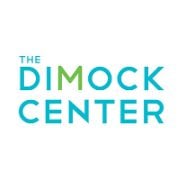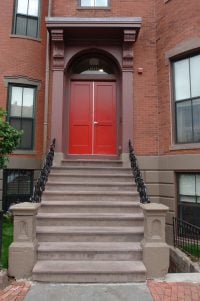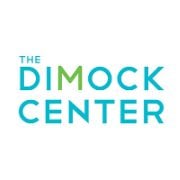
Whittier Street Health Center
Drug Rehab Center in Boston, Massachusetts
- Substance Abuse
- Opioid Addiction
- Drug Addiction
Whittier Street Health Center in Boston, MA provides evidence-based addiction treatment programs including outpatient care, aftercare support, and counseling services to help individuals achieve long-term recovery from opioid addiction, substance abuse, and drug addiction, with the acceptance of private health insurance.
About This Massachusetts Facility
Whittier Street Health Center, located in Boston, Massachusetts, is an addiction treatment facility founded in 1933. Dedicated to helping individuals who are suffering from opioid addiction, substance abuse, and drug addiction, Whittier Street Health Center offers a range of services to support their recovery journey. They specialize in aftercare support, drug rehab programs, and provide outpatient levels of care to suit the specific needs of their patients. With a comprehensive approach to addiction treatment, Whittier Street Health Center strives to empower individuals towards achieving long-lasting recovery.
Whittier Street Health Center offers a multitude of services and treatment methods for those struggling with addiction and substance abuse. Their aftercare support enables patients to sustain their progress beyond the initial treatment phase. The center also provides drug rehab programs that focus on individualized care plans tailored to each patient's needs, addressing both physical and psychological aspects of addiction. Through outpatient levels of care, individuals have access to counseling services as well as group therapy sessions that foster peer support and connectivity. Whittier Street Health Center ensures that individuals feel supported throughout their recovery journey by offering a variety of treatment options catered to promoting lasting sobriety.
Genders
Ages
Modality
Additional
Conditions and Issues Treated
Recovering from any type of substance abuse is a long process, but it is one of the most worthwhile and life changing events any addicted person will ever go through. This is a combination of detoxing the body, rehabilitation, and recovery. There is also therapy, aftercare, and support during the entire process.
While substance abuse can take over a person’s life, it is something that can also be overcame by professionals at Whittier Street Health Center in Boston, MA
With so many people struggling with opioid addiction, opioid addiction treatment is more critical than ever before. Patients often take opioids when they face a painful injury. When someone begins taking opioids such as Vicodin or oxycodone differently than how the medications were prescribed, this points to opioid addiction.
Stopping these types of medications abruptly is not safe. That is where opioid addiction treatment at Whittier Street Health Center in Boston, MA comes in. Most opioid addiction treatment facilities start with detox and move to rehabilitation services while providing medical support during the process.
Getting over an opioid addiction takes time and determination, but with the right support and resources, those struggling with opioid addiction can recover and move forward with their lives.
Levels of Care Offered at Whittier Street Health Center
This center offers a variety of custom treatment tailored to individual recovery. Currently available are Aftercare Support, Drug Rehab, Outpatient, with additional therapies available as listed below.
Outpatient treatment is treatment that occurs when a patient is not checked into a rehab facility. The patient may show up for therapy sessions, go through detox and engage in other therapies to help them recover. However, they will do so while they live at home in Massachusetts.
Outpatient therapy provided by Whittier Street Health Center is usually recommended as a follow up to inpatient therapy. It helps patients adapt to their normal lives after treatment. In some cases, it can also be an alternative to inpatient treatment. People may choose this route if they are unable to leave their jobs, children or if they don’t have the money for inpatient treatment. However, inpatient treatment is the best way to recover from addiction.
Therapies & Programs
Families are not always as supportive as they could be, but by opting for family therapy, many recovering addicts are able to understand their addiction and get the support they need to get sober. These therapy sessions at Whittier Street Health Center in Boston, MA involve all members of the family who play a role in the recovering person’s daily life. They work together to overcome past issues, avoid triggers, and remain strong and supportive of each other.
In group therapy, the patient undergoes sessions with other patients dealing with similar problems under the guidance of a trained counselor. The members of the group interact with each other and talk freely about their issues. The recovery of members of the group from the problems that they face gives the patients confidence that they can also overcome their addiction.
Group therapy at Whittier Street Health Center reduces the feeling of loneliness and improves the coping skills of the patients. Group therapy provides patients with continuous feedback from other members. The group dynamics ensure that members start having some structure and routine in their lives.
Dialectical behavior therapy (DBT) is a method of individual and/or group counseling that focuses on acceptance and change. DBT can be very effective in developing coping strategies for negative emotions.
Cognitive behavioral therapy (CBT) is a way of addressing concerns through talking. Talking through issues can identify sources of discomfort or unhealthy thoughts. CBT is a healthy way Whittier Street Health Center addresses some behaviors which may be bringing unintended consequences in a persons life.
Payment Options Accepted
For specific insurance or payment methods please contact us.
Is your insurance accepted?
Ask an expert, call (888) 674-0062
Additional Details
Specifics, location, and helpful extra information.
Boston, Massachusetts 02120 Phone Number(617) 427-1000 Meta DetailsUpdated November 25, 2023
Staff Verified
Patient Reviews
There are no reviews yet. Be the first one to write one.
Boston, Massachusetts Addiction Information
Massachusetts has one of the highest rates of drug abuse in the country. More than half a million Massachusetts residents abuse alcohol while more than 1.5 million use illegal drugs each year. This drug and alcohol usage is the cause of over 8% of all deaths in the state. In 2017, Massachusetts ranked in the top 10 of the states with the highest opioid overdose rates.
Boston has one of the highest rates of opioid abuse in the country. 1 in 10 residents struggles with substance abuse. Between 2013 and 2017, the number of opioid-related deaths in the area increased by 64%. There were over 1,100 overdose deaths in 2016. Detox is the first step in most treatment programs in Boston. This is where the person stops using drugs and allows their body to cleanse itself of toxins.
Treatment in Nearby Cities
- Wareham, MA (43.9 mi.)
- South Dennis, MA (65.1 mi.)
- Billerica, MA (18.0 mi.)
- Northampton, MA (79.2 mi.)
- Beverly, MA (19.0 mi.)
Centers near Whittier Street Health Center



The facility name, logo and brand are the property and registered trademarks of Whittier Street Health Center, and are being used for identification and informational purposes only. Use of these names, logos and brands shall not imply endorsement. RehabNow.org is not affiliated with or sponsored by Whittier Street Health Center.




